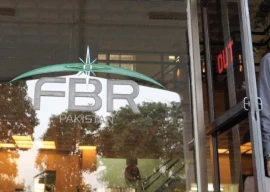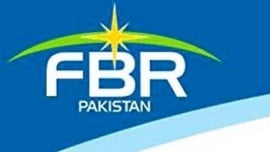
Prime Minister Shehbaz Sharif, on Tuesday, directed the hiring of a foreign consultant to modernise the Federal Board of Revenue (FBR), indicating a departure from the previously approved restructuring plan. This decision emerged during the PM’s first comprehensive meeting on the administrative affairs of the FBR. The PM stressed the urgent need to engage international consultants and suggested securing a waiver of international competitive bidding from the Public Procurement Regulatory Authority, if necessary, according to officials.
This move suggests that the Pakistan Muslim League-Nawaz (PML-N) government may not implement the FBR restructuring plan approved by the previous caretaker government.
Former Finance Minister Dr Shamshad Akhtar virtually attended the meeting and presented her plan. Dr Akhtar may again give a presentation to the PM on Wednesday (today) regarding her restructuring plan.
The foreign consultant will be hired to modernise and digitise the FBR, aiming to eliminate physical contact between tax officials and taxpayers. However, this decision also raises questions about the viability of two foreign loans worth $700 million obtained from the World Bank and the Asian Development Bank for domestic revenue mobilisation and FBR modernisation.
Government officials stated that the PM also expressed displeasure over the non-implementation of his eight-month-old orders to install scanners for monitoring various manufacturing units, particularly in the tobacco industry. The PM was informed that there were no funds available for procuring the scanners.
In the meeting, the former finance minister claimed that the FBR did not request funds, but the tax machinery did seek an increase in salaries.
The PM also instructed the hiring of competent individuals from the market to oversee the track and trace system, designed to address underreporting by tobacco manufacturers, beverage producers, sugar companies, and cement manufacturers.
The FBR has long been a contentious issue, and Tuesday’s meeting was no exception. The interim government exacerbated problems in the FBR rather than resolving them. The PM declared digitisation of the FBR as his top priority, stressing its critical importance for Pakistan. He also directed the enforcement of the digital invoicing initiative.
The International Monetary Fund has also called for a substantial increase in tax revenues, with a focus on expanding the tax net to include retailers and wholesalers. So far, its focus has remained on the salaried class and formal sector. FBR Chairman Amjad Zubair Tiwana briefed the PM on initiatives taken to combat corruption in the tax machinery, highlighting how digitisation of the FBR would help address corruption issues.
The FBR chairman mentioned that this fiscal year, they aim to bring an additional 1.5 million taxpayers into the fold. Legislation has been enacted for digitising invoicing, which the prime minister directed was for immediate implementation.
So far, the FBR has received fewer than four million income tax returns, about 35% less than the comparative period. Last tax year, nearly six million individuals and entities filed returns.
The PM commended the FBR for achieving the eight-month revenue target of Rs5.830 trillion. However, the FBR missed targets in the last months, and overall target achievement was possible only due to better performance in the first half of the fiscal year.


1731933289-0/BeFunky-collage-(68)1731933289-0-165x106.webp)


1729662874-0/One-Direction-(1)1729662874-0-165x106.webp)

1732181665-0/Express-Tribune-(9)1732181665-0-270x192.webp)
1732178966-0/BeFunk_§_]__-(22)1732178966-0.jpg)
1732178488-0/Express-Tribune-(7)1732178488-0-270x192.webp)
1732172357-0/BeFunk_§_]__-(18)1732172357-0.jpg)
1732176172-0/Untitled-design-(8)1732176172-0-270x192.webp)








COMMENTS (1)
Comments are moderated and generally will be posted if they are on-topic and not abusive.
For more information, please see our Comments FAQ